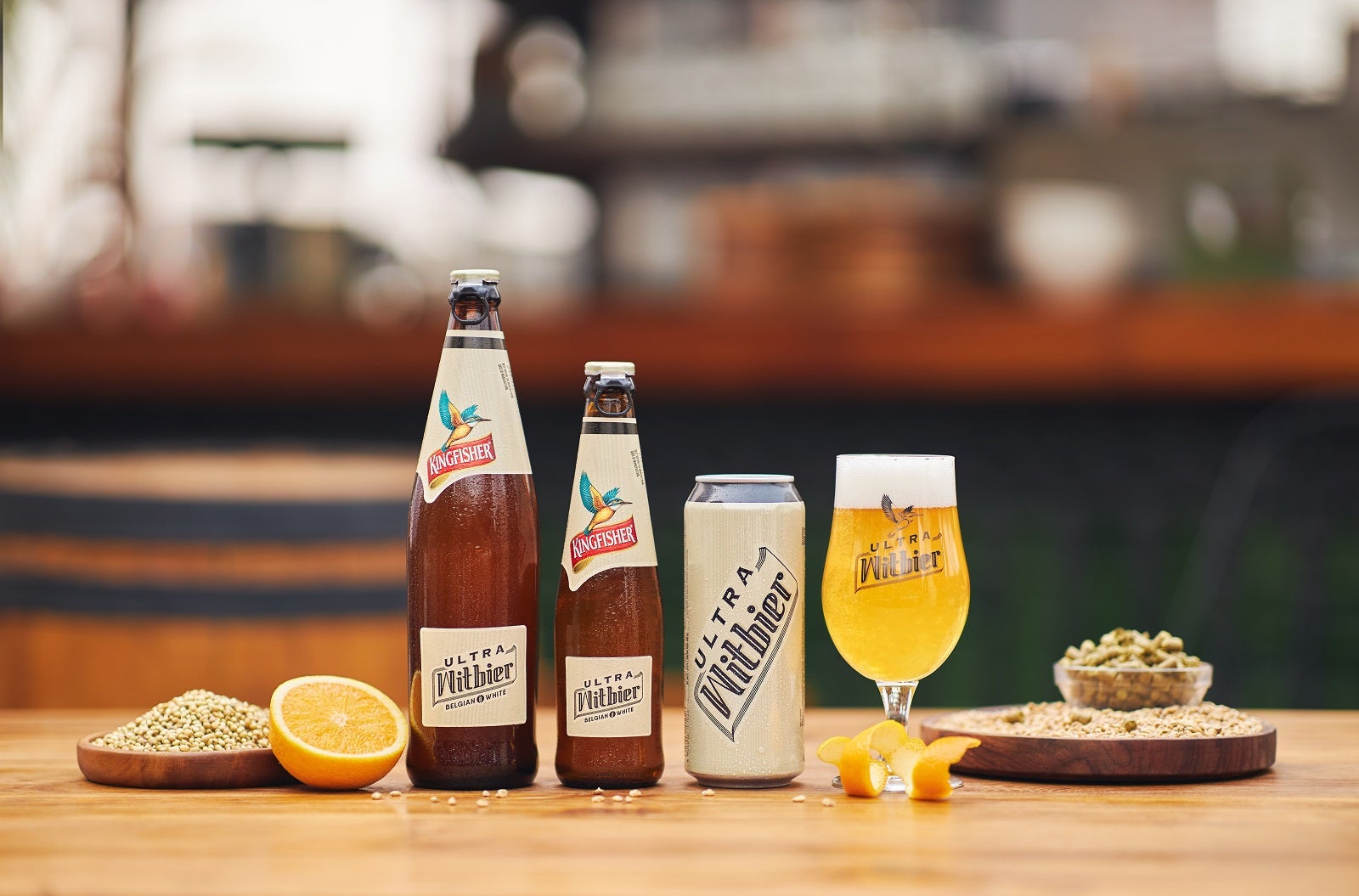India’s biggest brewer has now developed a taste for craft beer
India’s small, yet growing, bottled craft beer market is starting to attract the interest of big brewers.


India’s small, yet growing, bottled craft beer market is starting to attract the interest of big brewers.
Last month, the country’s biggest beermaker by market share, United Breweries (UBL), launched Ultra Witbier, under its popular Kingfisher brand in Karnataka. The Bengaluru-based company has now launched the craft beer, its first, in Goa and is prepping to enter cities like Mumbai, Pune, and Gurugram.
In India, where whiskey and rum have been the first choice of drinkers for long, evolving consumer tastes are fuelling growth in this category, originally brewed in small quantities in microbreweries.
“For two years, we have been studying the craft beer segment closely. It is well-placed to benefit from Indian drinkers’ growing preference for visually appealing and less-bitter drinks,” Gurpreet Singh, head of marketing at UBL, said in an interview with Quartz.
Despite its deep pockets and pan-India distribution network, UBL does not see itself as a big threat to other craft beer players. “Smaller craft beer brands and players such as Bira 91, Simba, and White Owl have created this niche segment and it is big enough for all the players to coexist,” added Singh.
He also talked about the company’s expansion strategy and the need for a progressive licensing regime for the alcohol industry. Edited excerpts:
How big is the business opportunity in the craft beer segment in India?
The current size of the Indian beer market is about 390 million cases (a case is 24 bottles) a year. Of this, the demand for craft beer is merely 1.5 million cases, but it is growing. Globetrotting consumers, particularly young drinkers, are exposed to new flavours and open to experimenting. In India, a niche yet growing segment of drinkers is showing a preference for craft beer. UBL wants to be present in all segments to be able to target every consumer’s needs.
What kept UBL away from the craft beer segment, all along?
There are two reasons why we stayed away from craft beer so far. Until a few years ago, it was a small segment, not sizeable enough for a large player like us to step in. However, in recent years, the opportunity for bottled craft beer has been growing.
We waited for the market to grow with smaller players (such as Bira 91, Simba, and White Owl) taking the lead in creating awareness around it. Smaller breweries are running the craft beer business in India like a small and medium enterprise. Since the market is expanding, we think this is the right time to make an entry.
What is UBL’s launch and expansion strategy?

A pan-India launch does not work for an alcoholic product. With a mass launch, one cannot advertise and spread the word about the product. Also, in the case of a niche offering like craft beer, it makes sense to launch it in a phased manner. At any given time, we are targeting only one or two states.
We launched Kingfisher Ultra Witbier in select pockets in Karnataka, including Mysuru and Bengaluru, in December 2019. We also introduced the product in Goa in January this year during the Sunburn Music Festival. Prior to that, we were running product trials there given that December is a packed season for tourists in Goa. Next, the company will launch the product in Mumbai, Pune, and Gurugram.
What is the number of cases and market share that you are chasing in the initial phase of the launch?
We are in an early stage of the launch and still driving trials. As of now, it is not a volume game for us. At present, we are targeting a small audience. The company first wants to capture the mind space of discerning drinkers who prefer craft beer. Market share will follow.
What’s the unique selling point of your product?
With alcohol content lower than 5%, the (Kingfisher Ultra Witbier) beer is a rich blend of all-natural extracts of orange and coriander, spices sourced from Belgium and aromatic hops sourced from US.
Since you are importing most of the ingredients—does it drive up product cost?
Importing ingredients puts us at a disadvantage in terms of cost-to-cost comparison with other existing brands. Making white beer (high in wheat content) is a bit more expensive for us. Within our own portfolio, the Kingfisher Ultra Witbier is priced Rs10-15 higher than Kingfisher Ultra.
What are the stock-keeping units (SKUs) and price points at which Kingfisher Ultra Witbier is available?
Kingfisher Ultra Witbier is available in three SKUs, a 330ml bottle, a 500ml can and a 650ml bottle, priced at Rs110, Rs150, and Rs185, respectively in Karnataka. In Goa, Kingfisher Ultra Witbier is available in two SKUs, a 330ml bottle and a 650ml bottle, priced at Rs65 and Rs100, respectively. The product prices vary in these two markets due to different taxation and excise rates.
Meanwhile, the bulk of other craft beer brands in the market are available in 500 ml cans since their focus is restricted with limited distribution.
Do you think the company has an advantage over smaller craft beer players owing to its larger distribution network? Moreover, consumers are familiar with the Kingfisher brand?
Yes, we have the advantage of a wider distribution network. Given their familiarity with the Kingfisher brand, consumers will try our new offering. Then, there are those who are keen to experiment and seek new flavours. There will be drinkers in this segment, too, who will try our offering even as they continue to consume other brands available in the market.
So how can smaller craft beer players and brands such as White Owl, Simba, and Bira compete with you?
The market has a lot of potential for growth. We do not see smaller brands as competitors or threats. On the contrary, we have learnt from existing players in the craft beer segment. We have picked up taste patterns from them. As a big player, our entry will help expand distribution as well as the market for craft beer.
What are the challenges facing the company?
The challenges are regulatory in nature and not consumer-oriented. On the policy and regulatory front, we need to look at the alcohol business more progressively. Licensing framework has to be made easier and affordable. We are in a complicated business. We are not covered under the goods and services tax regime. Excise rules have to be simplified to pave way for better pricing across markets.